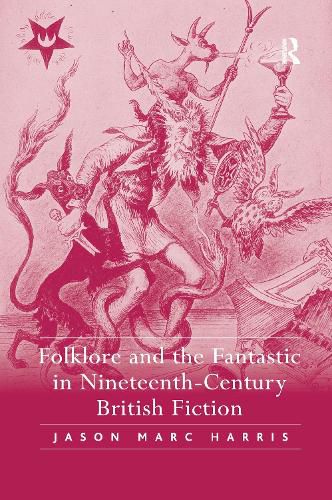Readings Newsletter
Become a Readings Member to make your shopping experience even easier.
Sign in or sign up for free!
You’re not far away from qualifying for FREE standard shipping within Australia
You’ve qualified for FREE standard shipping within Australia
The cart is loading…






Jason Marc Harris’s ambitious book argues that the tensions between folk metaphysics and Enlightenment values produce the literary fantastic. Demonstrating that a negotiation with folklore was central to the canon of British literature, he explicates the complicated rhetoric associated with folkloric fiction. His analysis includes a wide range of writers, including James Barrie, William Carleton, Charles Dickens, George Eliot, Sheridan Le Fanu, Neil Gunn, George MacDonald, William Sharp, Robert Louis Stevenson, and James Hogg. These authors, Harris suggests, used folklore to articulate profound cultural ambivalence towards issues of class, domesticity, education, gender, imperialism, nationalism, race, politics, religion, and metaphysics. Harris’s analysis of the function of folk metaphysics in nineteenth- and early twentieth-century narratives reveals the ideological agendas of the appropriation of folklore and the artistic potential of superstition in both folkloric and literary contexts of the supernatural.
$9.00 standard shipping within Australia
FREE standard shipping within Australia for orders over $100.00
Express & International shipping calculated at checkout
Jason Marc Harris’s ambitious book argues that the tensions between folk metaphysics and Enlightenment values produce the literary fantastic. Demonstrating that a negotiation with folklore was central to the canon of British literature, he explicates the complicated rhetoric associated with folkloric fiction. His analysis includes a wide range of writers, including James Barrie, William Carleton, Charles Dickens, George Eliot, Sheridan Le Fanu, Neil Gunn, George MacDonald, William Sharp, Robert Louis Stevenson, and James Hogg. These authors, Harris suggests, used folklore to articulate profound cultural ambivalence towards issues of class, domesticity, education, gender, imperialism, nationalism, race, politics, religion, and metaphysics. Harris’s analysis of the function of folk metaphysics in nineteenth- and early twentieth-century narratives reveals the ideological agendas of the appropriation of folklore and the artistic potential of superstition in both folkloric and literary contexts of the supernatural.